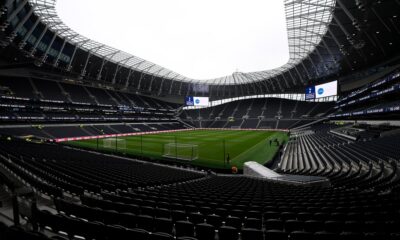Features
Infographic: There’s more to a footballer than fast feet and WAGS
Here’s an infographic providing information and stats on how nutrition will play a vital role for the players competing at Euro 2016 this summer.
The 2016 European Championship finals kick-off this evening as the 24 competing nations get set to battle-it-out for one of the most prestigious trophies in world sport.
With the stakes so high, managers will leave no stone un-turned when it comes to ensuring his squad is in the best possible condition heading in to a major tournament.
Obviously a key component is making sure the squad work hard on the training pitch to get them in excellent shape while you’ll also see players doing extra work-outs in the gym. Often, a footballer will head to the gym after training, slip on his workout headphones – Gearweare recommend Bose soundsport as they are also waterproof – and do an hour-long session to try and give himself the edge.
However, as well as working tirelessly on the training pitch, coaches will be taking nutrition, training and recovery extremely seriously as they play a key role in helping a player perform to the best of his ability on a consistent basis.
Leading football nutritionist and ambassador for Lizi’s High Protein Granola, Matt Lovell, has revealed the nutritional intake, exertion and recovery of a typical football player, including the amount of food he’ll consume throughout the tournament if his team were to make the final in France this summer.
On an average match-day, a typical player will consume a whopping 4,000 calories by eating meals consisting of high protein and the right sort of carbs, that’s because some players can run up to 34km/h and cover the distance of a half marathon while burning around 1,500 calories per match.
Therefore, it’s vital that the players consume the right foods during Euro 2016 to ensure they have the best chance of being able to play to the best of their ability and sustain high energy levels throughout the competition.
Matt Lovell, international football performance nutritionist says;
“Balancing the right nutrition with exercise and rest is a key component to success. 31 days of competition is grueling and to ensure maximum performance and results the entire squad, from players to management, need to be prepared for discipline and focus.
“A players meal plan will be determined by their position, energy output and tests measuring their blood sugar levels – so each player will be different. It also means some players will get more opportunities for ‘cheat meals’ such as pizza, ice cream and chocolate. This never goes down too well!”
“Reaching the final isn’t just about having the best players; it’s also about being fed the right type of food, allowing your body to rest and believe it or not – not over doing the training.”
On a typical match-day, a players’ daily meal plan will consist of plenty of eggs, chicken vegetables and fish while they will also supplement those meals with protein bars – the best of which have been reviewed by Runnerclick as there are plenty of options available.
Here is a sample match-day meal plan:
Breakfast
Omelette, scrambled / poached eggs
High protein granola
Tea/Coffee
Lunch
Chicken breast / fish
Occasionally filet steak
Green vegetables
Rice or pasta
Supper
Fish or Chicken stir-fry with noodles
Side salad
Those who are allowed may have Shepherds Pie or Lasagne
Snacks
Dark Chocolate (size of thumb nail)
Protein bars
Jelly Beans
If that players team was to make the final of Euro 2016, he could have eaten 84 bananas, 208 chicken breasts, 42 bowls of granola, 150 litres of water and 10 slices of pizza through the duration of the tournament!
Here is an interesting infographic that provides more information on this subject:

















